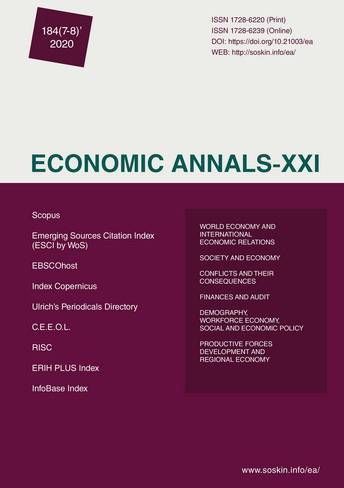Quality of life as an indicator of public management performance in the Republic of Kazakhstan
Quality of life as an indicator of public management performance in the Republic of Kazakhstan
Author(s): Aibota Rakhmetova, Yeraly BudeshovSubject(s): Economy, Social differentiation
Published by: Institute of Society Transformation
Keywords: Living Standards; Income Inequality; Life Satisfaction; Natural Growth of the Population; Happiness; Public Administration; State; Institutions;
Summary/Abstract: We examine quality of life issues in the Republic of Kazakhstan. Based on systematization of theoretical approaches to the definition of a concept and structure of living standards found in scientific literature and their critical analysis, we have identified and justified the fundamental structural blocks of the quality of life as a complex aggregate indicator reflecting the level of development of many areas of a modern person’s life together affecting the degree of his or her life activity’s efficiency. Using an extensive range of statistical data and tools of economic and mathematical modeling, we aim to identify the degree of influence of macroeconomic indicators that characterize certain areas of human life (healthcare, education, living conditions, security, income level, etc.) on living standards. Given the above, the central hypothesis of this study is that public management of the quality of life in the Republic of Kazakhstan can be more effective if it provides a scientifically grounded system of tools based on the assessment of the quality of life which takes into account both regional and industry specifics, feedback from the population as a recipient of public services, and is based on the principle of integration and consistency of state body management decisions.Results we have obtained imply the existence of a correlation between such quantitative indicators as natural growth, a number of pension recipients, the Gini coefficient and the quality of life index determined by qualitative indicators: general life satisfaction of the population and the level of perception of happiness. Results of the study confirm current trends in the socio-economic development of Kazakhstan, characterized by income inequality issues in both intersectoral and interregional sections, aggravated against the background of the global pandemic threat, the recession of a prolonged nature, and other external shocks and challenges. Based on the results obtained, the authors conclude that the key causes of socio-economic differentiation in Kazakhstan are associated with a weak institutional environment and weak performance of formal institutions. The quality of institutions impacts the process of socio-economic development in a creative way, including through the formation of an appropriate institutional environment regulating the entire set of socio-economic relations. This circumstance emphasizes the priority of challenges state management bodies face in the context of improving the existing institutional environment, which allows determination of rational behavior boundaries for people and economic entities to optimize and stabilize the socio-economic development of the state as a whole.We have developed and proposed a number of suggestions and recommendations for improving the existing institutional environment and the system of state management, practical implementation of which should reduce the existing large gap in income levels as the main factor of living standards in Kazakhstan.
Journal: Економічний часопис - ХХІ
- Issue Year: 184/2020
- Issue No: 07+08
- Page Range: 133-153
- Page Count: 21
- Language: English

